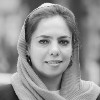There has been no tangible progress made by political leaders and government officials in reaching an agreement on the Supreme State Council's structure, number of members, or authority--as either an advisory council or decision-making body--an official of the High Council for National Reconciliation said on Sunday.
According to a document seen by TOLOnews, an 18-person list has been prepared for membership of the Supreme State Council, but the Presidential Palace said it is not final so far. Some politicians, including Hizb-e-Islami leader Gulbuddin Hekmatyar, has called for less members, according to sources.
Enayatullah Babur Farahmand, the deputy head of the reconciliation council, referring to the list that was leaked to the media, said that inclusivity and proportionate religious and ethnic participation should be considered in the formation of the Supreme State Council.
“There are two big differences over the Supreme State Council. The first difference is over its authorities and the decision-making role of the council, and the second difference is on the structure and the number of the members of the Supreme State Council,” Farahmand said.
Some reports indicate that the president has sent some of his aides to consult with Hekmatyar, Salahuddin Rabbani and Hamid Karzai to discuss with them the finalization of the names of the council and the limits of its authorities.
“Some say that the number of the members of the council should be less, some say it should be more. Some say that if it is formed, its priority should be peace… I don’t think that they will achieve an agreement by tomorrow or the day after tomorrow,” former presidential adviser Shahzada Massoud said.
Meanwhile, Abdul Latif Pedram, the head of the National Congress Party, said at a news conference that all politicians who want to be a part of the Supreme State Council are responsible for the current situation in the country.
“Look at the members of the Supreme State Council. They are those who have had a major role in Afghanistan’s issues. They are accused of many issues, from misuse of authority, corruption, embezzlement to drug trafficking and others. Many of them have had a big role in the country’s situation over the last four decades,” Pedram said.
But the government said that consultations with political leaders on the council are underway.
“Out of the 18 people, 15 are either taking salaries from the Presidential Palace or they are paid by the Palace ... their security is ensured by the Palace. In fact, they are bound to Arg (the Presidential Palace),” said Torek Farhadi, a former presidential adviser.
According to a document seen by TOLOnews, there are 14 men and 4 women on the list.
On the 18-member list are President Ashraf Ghani, the head of the High Council for National Reconciliation Abdullah Abdullah, former president Hamid Karzai, former jihadi leader Abdul Rab Rassoul Sayyaf, Hizb-e-Islami leader Gulbuddin Hekmatyar, former vice president Mohammad Karim Khalili, former foreign minister Salahuddin Rabbani and Fatima Gailani.
Other names included are Mohammad Mohaqiq, Marshal Abdul Rashid Dostum, Ata Mohammad Noor, Mohammad Sarwar Danish, Mir Rahman Rahmani, Fazel Hadi Muslimyar, Hasina Safi, Fawzia Koofi, and Habiba Sarabi.
Politicians said that the key is whether these individuals will have decision-making authority.
The council is expected to focus on the management of Afghanistan’s situation after the withdrawal of international troops from the country.


